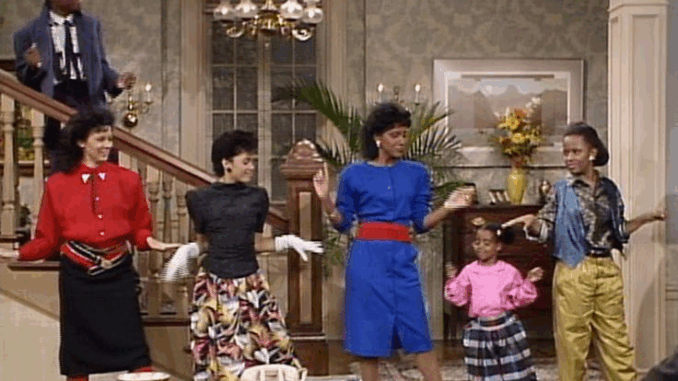
Decades after it first aired, “The Cosby Show” continues to spark debate and evoke strong emotions. For a generation, it was more than just a sitcom; it was a cultural phenomenon, a weekly invitation into the warm and aspirational world of the Huxtable family. But beneath the layers of laughter and heartwarming moments lies a complex legacy, one that has been irrevocably altered by the shadow of its leading man.
Remember gathering around the television, eager to witness the witty banter between Cliff and Clair, the relatable struggles of Theo, or the adorable antics of Rudy? “The Cosby Show” painted a vibrant picture of a successful Black family, a stark contrast to many of the portrayals prevalent in media at the time. It showcased intelligence, humor, and genuine affection, breaking down stereotypes and offering a vision of possibility for viewers of all backgrounds.
The show subtly weaved in important themes – the value of education, the strength of family bonds, and navigating cultural identity. It became a touchstone for discussions about race, class, and the American Dream. The Huxtables weren’t just characters; they felt like family to millions, their successes celebrated, their challenges understood. The show’s influence on subsequent television programming and its contribution to shifting perceptions cannot be overstated.
However, the rosy picture painted by “The Cosby Show” has been tragically complicated by the numerous and credible allegations of sexual assault against Bill Cosby. The accusations, which surfaced years after the show’s end, have forced a painful re-evaluation of the series and its central figure. Can we reconcile the beloved Dr. Cliff Huxtable with the disturbing image of the man who portrayed him?
This is the central question that now haunts any discussion of “The Cosby Show.” The nostalgia we might feel is often intertwined with a sense of betrayal and disillusionment. It compels us to look beyond the surface of the sitcom’s comforting narratives and confront the uncomfortable truth about the man at its helm.
Exploring “The Cosby Show” today requires a nuanced perspective. It demands that we acknowledge its historical significance and the positive impact it had on representation in television. But it also necessitates a critical examination of the show in light of the allegations against its star. Can we separate the art from the artist? Is it possible to appreciate the cultural contributions of the show while condemning the alleged actions of its lead?
The answers to these questions are not simple, and they vary greatly from viewer to viewer. What remains undeniable is that “The Cosby Show,” once a symbol of wholesome family entertainment, now stands as a stark reminder of the complexities of legacy, the fallibility of heroes, and the enduring impact of truth. Its story is no longer just about laughter and life lessons; it’s a poignant reflection on the power of representation and the devastating consequences of betrayal, leaving us to grapple with its multifaceted and ultimately complicated place in television history.
